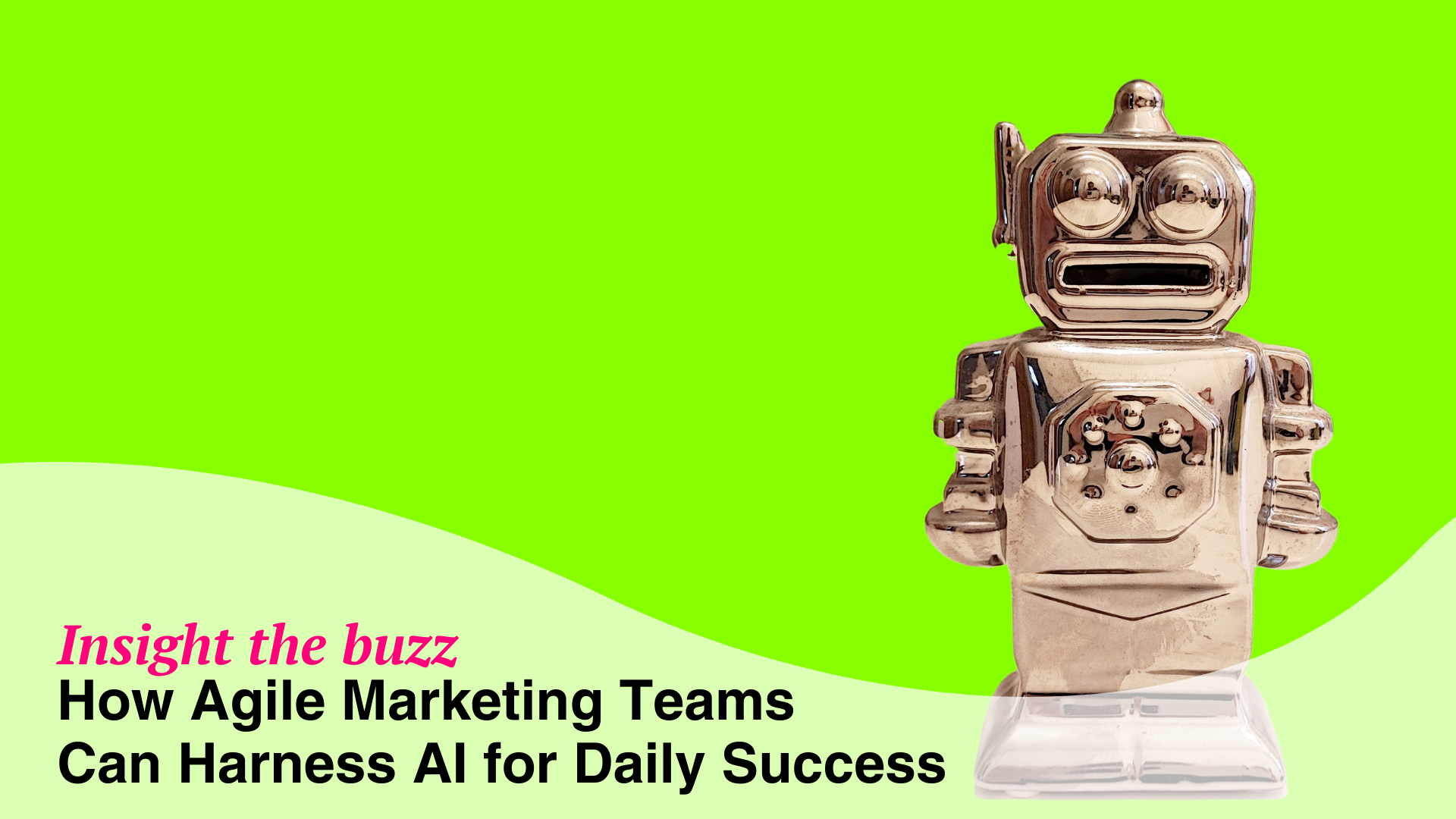
How Agile Marketing Teams Can Harness AI for Daily Success
In today’s dynamic business landscape, the synergy of agile marketing teams and artificial intelligence (AI) presents a transformative opportunity.
As technology continues to evolve, adopting AI in marketing strategies is no longer a luxury but a necessity. This article explores the integration of AI into the daily workings of agile marketing teams, examining the shift in the current way of working, the advantages AI brings, the challenges to overcome, and key considerations for optimal implementation.
1. Embracing Change: Agile Marketing Teams and AI
Change to the Current Way of Working:
Agile marketing teams are characterized by their adaptability and responsiveness to changing market dynamics. The infusion of AI introduces a paradigm shift in the way these teams operate. Traditional manual processes are augmented, and data-driven decision-making becomes the norm. AI empowers marketers to move beyond guesswork, leveraging insights derived from vast datasets to refine and enhance their strategies.
2. Advantages of AI Integration in Agile Marketing
a. Enhanced Personalization:
AI enables marketers to delve deep into customer behaviors and preferences, facilitating the delivery of personalized content. This tailored approach not only strengthens customer engagement but also improves conversion rates.
b. Predictive Analytics for Proactive Strategies:
By analyzing historical data, AI equips agile teams with predictive analytics. This foresight enables marketers to anticipate trends, optimize campaigns, and make data-driven decisions before issues arise.
c. Automation for Efficiency:
Routine and time-consuming tasks, such as data analysis and reporting, can be automated through AI. This allows marketing teams to redirect their focus towards strategic thinking, creativity, and developing impactful campaigns.
3. Challenges in Integrating AI for Agile Marketing Teams
a. Skill Gap:
Implementing AI requires a certain skill set that may not be readily available within existing teams. Upskilling or hiring experts may be necessary to navigate the complexities of AI integration effectively.
b. Data Security and Privacy Concerns:
As AI relies heavily on data, ensuring the security and privacy of customer information becomes paramount. Agile marketing teams need robust protocols and ethical practices to maintain trust.
c. Integration Complexity:
Integrating AI seamlessly into existing workflows can be challenging. Overcoming resistance to change and ensuring a smooth transition is crucial for successful implementation.
4. Implementation for Optimal Results
a. Comprehensive Training:
Invest in training programs to upskill existing team members. This ensures that the team is equipped to harness the full potential of AI tools and technologies.
b. Data Governance Policies:
Establish clear data governance policies to address concerns related to security and privacy. This instills confidence in both the team and customers regarding the ethical use of data.
c. Collaborative Culture:
Foster a culture that embraces collaboration between marketing and AI specialists. An open exchange of ideas and skills ensures a harmonious integration that maximizes the strengths of both human and machine intelligence.
d. Iterative Approach:
Adopt an iterative approach to AI implementation. Start with smaller projects, gather insights, and refine strategies over time. This allows the team to learn and adapt without overwhelming changes.
5. Conclusion
In the dynamic landscape of modern marketing, agile teams that embrace AI gain a competitive edge. The shift in the way of working, coupled with the advantages AI brings, positions organizations for success. While challenges exist, strategic implementation and a commitment to continuous improvement enable agile marketing teams to unlock the full potential of AI, paving the way for innovative and impactful campaigns. As AI becomes an integral part of the marketing toolkit, those who adeptly navigate this integration will lead the way in delivering meaningful and personalized experiences to their target audiences.
Read the article on LinkedIn
